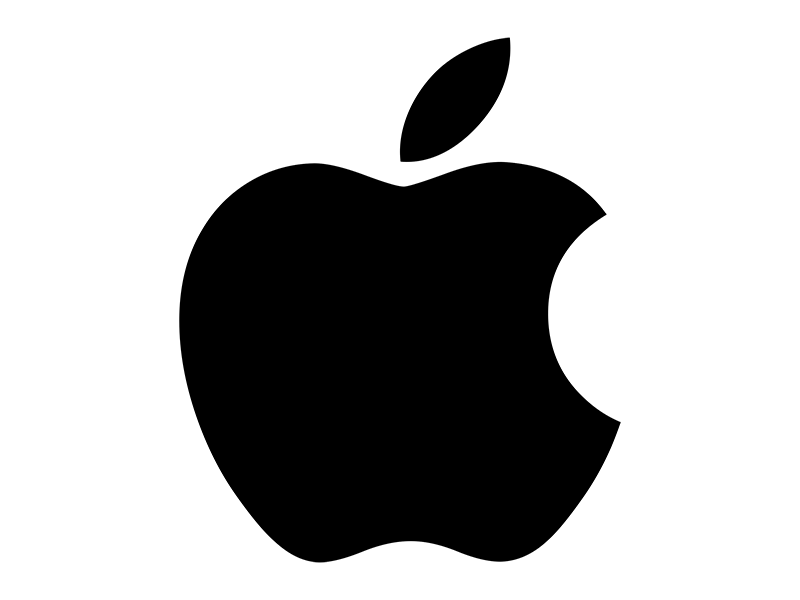//
Feb 18, 2024
4 Brands That Prove the Importance of Storytelling in Marketing
The ability to tell compelling stories has emerged as a crucial skill for businesses aiming to capture the attention and loyalty of their audience.
The powerful impact of storytelling in marketing cannot be understated. By exploring the success stories of four renowned brands: Nike, Apple, Airbnb, and Coca-Cola, we will examine unique approaches to business storytelling and how these brands have not only built strong market presences but also created lasting emotional connections with their consumers.
The Power of Storytelling in Marketing
Beyond the conventional methods of delivering information, storytelling crafts a narrative that resonates with and leaves a genuine impact. At the heart of effective storytelling lies the dual pillars of authenticity and genuine connection, elevating it from a mere communication strategy to a transformative force in the business landscape.

Authenticity: The Cornerstone of Compelling Narratives
Authentic storytelling is the cornerstone upon which enduring brand narratives are built. In a world where consumers are increasingly discerning and value authenticity, brands that weave genuine stories stand out.
storytelling implies transparency, truthfulness, and a sincere reflection of the brand's values and mission.
1. Trust and Credibility:
Authentic storytelling establishes trust by showcasing the genuine nature of a brand. When consumers sense authenticity, , making them more likely to engage, support, and ultimately become loyal advocates.
2. Relatability:
Authentic narratives make brands relatable. By sharing real experiences, challenges, and successes, a brand becomes more human, allowing the audience to connect on a personal level. This relatability builds a sense of camaraderie and understanding.
3. Long-Term Relationships:
In the long run, authenticity generates lasting relationships. When consumers perceive a as authentic, they are more likely to become repeat customers, fostering a sense of loyalty that extends beyond individual transactions.
Genuine Connection: Forging Emotional Bonds

Beyond authenticity, genuine connection lies at the heart of impactful storytelling. It goes beyond the transactional exchange of goods or services; it’s about creating an emotional bond between the brand and its audience. This connection transcends the traditional buyer-seller relationship, turning customers into brand advocates.
1. Emotional Resonance:
Genuine connection in storytelling elicits emotional responses. By tapping into such as joy, nostalgia, or inspiration, brands can create a resonance that lingers in the minds and hearts of their audience.
2. Shared Values:
Brands that authentically communicate their values through storytelling attract like-minded consumers. When individuals perceive alignment with a brand's values, they are more likely to choose that brand over competitors, fostering a community of supporters.
3. Impactful Engagement:
Genuine connection drives meaningful engagement. Whether through interactions, customer feedback, or community initiatives, brands that prioritize authentic interactions cultivate a loyalty that actively feedbacks the brand narrative in exciting ways.
Embracing Authentic Storytelling in Marketing Strategies
As businesses navigate the landscape of storytelling in marketing, the integration of authenticity and genuine connection becomes pivotal. The following strategies can guide brands in infusing their narratives with the power of genuine storytelling:
1. Know Your Story:
Before communicating with your audience, intimately understand your brand's story. What are its origins? What values define it? Authenticity begins with a clear understanding of your narrative.
2. Showcase Imperfections:
Embrace imperfections and challenges in your storytelling. Authenticity is not about perfection but about honesty. Sharing struggles and how they were overcome fosters relatability.
3. Listen to Your Audience:
Genuine connection involves . Actively listen to your audience's feedback, concerns, and experiences. Segment your audience and incorporate their perspectives, solutions, and thoughts into your business storytelling. .
4. Consistency Matters:
. Ensure that your brand's narrative remains authentic across all channels, from marketing campaigns to customer interactions, creating a cohesive and reliable image.
Unveiling the Powerhouses: Nike, Apple, Airbnb, and Coca-Cola
We all know some brands transcend mere machines of commerce, evolving into cultural phenomena with stories that captivate and resonate across diverse audiences. In this exploration of the importance of storytelling in marketing, we turn our attention to four iconic brands that have mastered the art of narrative-driven marketing: Nike, Apple, Airbnb, and Coca-Cola.
1. Nike - The Journey of Champions:

Nike's exceptional storytelling prowess lies in its ability to transform sports apparel into a symbol of inspiration and aspiration. The brand has consistently demonstrated the importance of storytelling in marketing through campaigns that go beyond product features, delving into the personal journeys of athletes.
Unveiling Human Stories:
Nike's iconic ", launched in 1988, encapsulates the brand's commitment to storytelling. The campaign was born out of the desire to celebrate the spirit of determination and resilience embodied by athletes. Drawing inspiration from the last words of a convicted criminal before his execution, "Just Do It" became a rallying cry for individuals facing challenges, urging them to push their limits.
This approach of storytelling resonates with consumers on a deeper level. By featuring real athletes with authentic stories of struggle, perseverance, and triumph, Nike taps into the universal human experience. The narrative is not just about athletic achievements; it's about the journey, the struggles, and the ultimate victory against all odds.
Emotional Connection and Brand Loyalty:
Nike's storytelling strategy is deeply rooted in the creation of an emotional connection with its audience. that emotionally engaged customers are more likely to become brand advocates and loyal customers.
Nike's stories evoke emotions such as inspiration, motivation, and determination, fostering a sense of connection that transcends the transactional nature of buying sportswear.
The Impact on Brand Perception:
Nike's commitment to storytelling has significantly impacted its brand perception. The association with high-profile athletes, such as Michael Jordan, LeBron James, and Serena Williams, adds a layer of authenticity to the brand narrative. The stories of these athletes become intertwined with the Nike brand, creating a powerful image of success, excellence, and determination.
The importance of storytelling for Nike extends beyond advertising campaigns. The brand consistently communicates its values and commitment to social causes through storytelling, further enhancing its image and resonating with consumers who align with those values.
2. Apple - Innovation and Personal Connection:

Apple, a tech juggernaut synonymous with innovation and , has not only revolutionized the industry but also set a benchmark in storytelling through its product launches and marketing campaigns. The brand's success is intricately linked to its ability to go beyond the technical specifications of its devices and create narratives that resonate with the deepest human desires.
Crafting Narratives of Innovation:
Apple's storytelling begins with innovation at its core. The late Steve Jobs, co-founder and former CEO of Apple, was a master storyteller who understood the power of narrative in shaping perceptions. Apple's product launches are carefully orchestrated events, resembling more of a theatrical performance than a typical corporate presentation.
Apple's storytelling approach is rooted in the classic narrative structure, often referred to as the hero's journey. The hero, in this case, is the user, and Apple's products are portrayed as tools that empower users to embark on a transformative journey.
Focusing on the Human Element:
The importance of storytelling for Apple lies in its ability to focus on the human element. While technical features are undoubtedly essential, Apple understands that users don't buy products solely based on specifications. They invest in a promise of a better, more connected, and more creative life.
Carmine Gallo, a communication coach and author, reviewed this aspect in his book . He emphasizes Jobs' knack for turning product presentations into compelling stories, focusing not just on what the product does but why it matters to the user. Ultimately, this approach creates a personal connection and emotional resonance where it matters most: the mind of their consumer.
Emotional Connection through Ad Campaigns:
In addition to product launches, Apple's advertising campaigns further emphasize the importance of storytelling in marketing. The ", for instance, transforms a simple product feature (camera quality) into a global showcase of user-generated content. This storytelling strategy reinforces the idea that Apple devices are not just tools but enablers of creativity and self-expression.
Emotionally evocative storytelling can lead to a more significant impact on individuals' attitudes and behaviors. Apple's ability to evoke emotions through its marketing campaigns contributes to the brand's long-lasting impact on consumer perception.
3. Airbnb - Creating Community through Narratives:

Airbnb's disruptive approach to the hospitality industry extends beyond connecting travelers with unique accommodations; it revolves around the creation of a global community. The platform's emphasis on user-generated content and community storytelling has become a cornerstone of its marketing strategy, transforming the act of booking accommodation into a journey of exploration and connection.
The Power of User-Generated Content:
Airbnb's commitment to user-generated content (UGC) is a testament to the authenticity it seeks to inject into its brand narrative. By encouraging hosts and guests to share their experiences through photos, reviews, and personal stories, Airbnb taps into the diverse and genuine nature of its community. This approach not only builds trust but also showcases the real-life impact of Airbnb's platform on people's lives.
Airbnb's reliance on authentic user-generated narratives aligns with this consumer preference, reinforcing the importance of genuine storytelling in marketing.
Community-Centric Campaigns:
Airbnb's storytelling extends to its marketing campaigns, which often focus on the diverse stories of hosts and guests. Campaigns like "" shine a spotlight on the unique experiences facilitated by the platform.
These narratives not only celebrate the individuality of hosts but also emphasize the broader theme of fostering connections and breaking down cultural barriers through travel.
The Impact on Brand Loyalty:
The importance of storytelling for Airbnb lies in the creation of a sense of belonging among its users. When travelers choose Airbnb, they aren't just booking a place to stay; they are becoming part of a global community that values shared experiences.
Airbnb's strategic use of narratives reinforces this sense of belonging, fostering enduring connections and repeat business.
4. Coca-Cola - Evoking Emotions and Traditions:

Coca-Cola, a beverage giant with a rich history dating back to the late 19th century, stands as a testament to the enduring power of storytelling in marketing. The brand has consistently used narratives that tug at the heartstrings and evoke a strong sense of and tradition.
Embracing Seasonal Joy:
One of Coca-Cola's most iconic storytelling moments happens . The annual release of the Coca-Cola Christmas advertisements has become a global tradition. These heartwarming campaigns often feature the company's famous red trucks adorned with twinkling lights, delivering joy and happiness to communities. The "Holidays are Coming" jingle and the sight of the Coca-Cola Christmas truck have become synonymous with the festive season.
Sharing Moments of Happiness:
extends beyond festive occasions to celebrate the everyday moments of joy and connection. Their commercials often depict simple yet powerful narratives of people sharing a Coca-Cola, whether it's friends bonding over a meal, families coming together, or strangers connecting in unexpected ways. Through these stories, Coca-Cola positions its beverage not just as a drink but as a catalyst for meaningful moments.
Legacy of Tradition:
Coca-Cola has successfully built a narrative around tradition, emphasizing the continuity of its brand . By featuring multi-generational stories, the brand creates a sense of timelessness and heritage. Whether it's the or the classic red and white branding, Coca-Cola strategically weaves these elements into its business storytelling, reinforcing a connection with the past while remaining relevant in the present.
Successful Storytelling in Marketing is Critical
The success stories of Nike, Apple, Airbnb, and Coca-Cola underscore the importance of storytelling in marketing. Understanding and incorporating effective storytelling into can elevate your brand from being a mere provider of products or services to a purveyor of lasting connections and memorable experiences.
Embrace the art of marketing storytelling, and watch your brand narrative unfold with authenticity, emotion, and enduring impact.
If you're ready to harness the power of storytelling for your brand's marketing needs, consider Watermark.
Our team of experts specializes in crafting compelling narratives that resonate with your audience, driving engagement, loyalty, and growth.
to embark on your brand's storytelling journey. Together, let's transform your marketing strategy and captivate your audience like never before.







